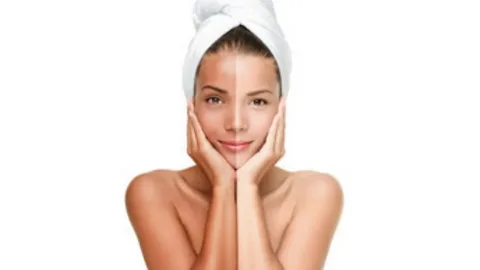In recent years, skin whitening has emerged as a significant trend in Riyadh, the bustling capital of Saudi Arabia. This phenomenon reflects not just a quest for beauty but also the complex interplay of cultural perceptions, social pressures, and health implications. As the demand for lighter skin continues to rise, it’s essential to explore the Skin whitening in Riyadh and motivations behind this trend, the types of products available, and the health risks involved.
Cultural Perspectives on Skin Tone
In many cultures, particularly in the Middle East, lighter skin is often idealized. This preference is rooted in historical contexts where fair skin was associated with wealth, privilege, and a life of leisure—far removed from the sun and manual labor. These cultural beliefs have been perpetuated over generations, creating a societal narrative that often equates lighter skin with beauty and desirability.
In Riyadh, the influence of media and advertising has further entrenched these ideals. Images of celebrities and influencers with fair complexions dominate social media platforms and beauty advertisements, creating a perception that lighter skin is not just desirable but essential for social acceptance. This has led many individuals, especially women, to feel pressured to conform to these beauty standards, fueling a booming market for skin whitening products.
The Market Landscape
The skin whitening market in Riyadh is vast and varied, offering a wide array of products—from creams and serums to treatments and pills. Many of these products promise to lighten skin tone, reduce dark spots, and deliver a more radiant complexion. The allure of quick results makes these products particularly appealing to consumers.
However, the ingredients in these products often raise significant health concerns. Commonly used agents such as hydroquinone and mercury can pose serious health risks. Hydroquinone, while effective, is linked to skin irritation and conditions like ochronosis, which causes bluish-black discoloration. Mercury, frequently found in unregulated products, can lead to kidney damage, neurological issues, and other severe health complications.
Despite regulatory efforts by the Saudi Food and Drug Authority (SFDA) to control harmful substances in cosmetics, unlicensed and dangerous products still circulate in the market. This underscores the importance of consumer education and awareness regarding product safety.
Health Implications and Professional Guidance
As the popularity of skin whitening products grows, healthcare professionals in Riyadh emphasize the necessity of informed choices. Dermatologists often advise against using unregulated products and recommend consulting with qualified specialists before starting any skin treatment.
For individuals seeking to lighten their skin safely, dermatological options such as chemical peels, laser therapy, and microdermabrasion provide effective alternatives. These treatments are conducted under professional supervision, ensuring safety and minimizing potential side effects.
Moreover, adopting a comprehensive skincare routine that includes sun protection is vital in Riyadh’s sunny climate. Regularly using sunscreen can help prevent sun damage and pigmentation, promoting healthier skin in the long run.
The Shift Toward Acceptance
While the desire for lighter skin remains prevalent, a gradual shift in societal attitudes is emerging. Influencers and advocates in Riyadh are increasingly promoting messages of self-acceptance and body positivity. Social media platforms are becoming spaces where diverse beauty is celebrated, challenging the traditional norms that have long dominated the narrative.
This change is particularly important for younger generations, who are becoming more aware of the risks associated with harmful beauty practices. Many are embracing their natural skin tones and finding empowerment in self-love, encouraging a broader definition of beauty that values individuality over conformity.
The Importance of Education
Education plays a crucial role in reshaping attitudes toward skin whitening. Public health campaigns aimed at informing consumers about the risks associated with certain products can effectively challenge harmful beauty standards. By fostering awareness around the potential dangers of harmful ingredients, Riyadh can promote a culture of health and well-being.
Moreover, discussions surrounding beauty standards should emphasize that beauty exists in all shades. Initiatives that celebrate diversity in skin tones can help shift perceptions and create a more inclusive environment, encouraging individuals to embrace their unique features.
Conclusion
The issue of skin whitening in Riyadh is multifaceted, reflecting a complex interplay of cultural values, health considerations, and evolving societal norms. While the pursuit of lighter skin remains a significant aspiration for many, the growing movement toward self-acceptance and the celebration of diversity offers a hopeful path forward.
By prioritizing education, safety, and the promotion of natural beauty, individuals can navigate the intricate landscape of beauty standards with confidence. Embracing the rich diversity of skin tones not only enhances individual self-esteem but also contributes to a healthier, more accepting society. Ultimately, the conversation around skin whitening is evolving, moving from a narrow focus on lightness to a broader appreciation for the unique beauty found in every individual.
However, the ingredients in these products often raise significant health concerns. Commonly used agents such as hydroquinone and mercury can pose serious health risks. Hydroquinone, while effective, is linked to skin irritation and conditions like ochronosis, which causes bluish-black discoloration. Mercury, frequently found in unregulated products, can lead to kidney damage, neurological issues, and other severe health complications.
